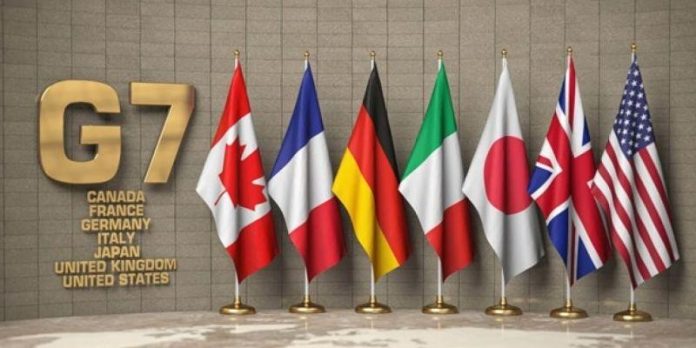
By Shakilur Rahman
Nov. 9, 2023
The G-7 group, in its meeting of foreign ministers, has addressed the Israel-Hamas conflict and the resultant humanitarian crisis in Gaza. It called for “humanitarian pauses and corridors” and release of hostages. But the group refrained itself from calling for ceasefire. Canada, France, Germany, Italy, Japan, the United Kingdom, and the United States, as well as the European Union are the members of the Group of seven (G7). They are world’s advanced economies.
Japan, who chaired this year’s G7 meeting, hosted discussions in Tokyo on Tuesday and Wednesday. At the end of talks, G-7 foreign ministers supported “humanitarian pauses and corridors” in the Hamas-Israel war but did not speak on ceasefire.
“We stress the need for urgent action to address the deteriorating humanitarian crisis in Gaza…. We support humanitarian pauses and corridors to facilitate urgently needed assistance, civilian movement, and the release of hostages,” a joint statement said.
Japan has called on all direct parties involved in the conflict to abide by international law and advocated de-escalation. Additionally, Japan has committed funds to help alleviate critical humanitarian needs in the Gaza Strip.
The possibility of a strategic pause in the Israeli offensive was discussed, with the aim of ensuring the safe withdrawal of civilians from targeted areas. However, Netanyahu has said there will be no ceasefire until people held hostage by Hamas are released.
French Foreign Minister Catherine Colonna repeated calls for an “immediate humanitarian ceasefire” in Gaza. She stressed that this ceasefire should ultimately lead to a ceasefire.
The United States also supports a humanitarian pause in Gaza, but has rejected a full ceasefire. US officials argue that the ceasefire could give Hamas an opportunity to regroup and plan future attacks. US Secretary of State Antony Blinken stressed the importance of member states speaking with “one clear voice” in response to these critical issues.
While G7 members have stressed the need to reduce civilian casualties, they have largely avoided direct criticism of Israeli actions in the conflict.
The Israeli military has relentlessly bombarded Gaza since October 7. The Hamas-run Health Ministry says the death toll in Gaza has surpassed 10,500 people.
Washington said on November 7 it opposed a new long-term occupation of Gaza by Israel, a stance reiterated by Blinken in Tokyo.
Key elements for lasting peace and security “should include no forcible displacement of Palestinians from Gaza, not now, not after the war; no use of Gaza as a platform for terrorism or other violent attacks; no reoccupation of Gaza after the conflict ends,” Mr. Blinken told reporters. But he was silent on what Washington would do to bring the ongoing conflict to an end.




